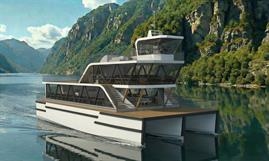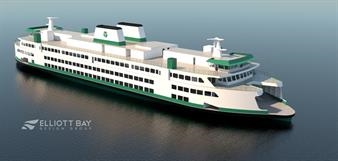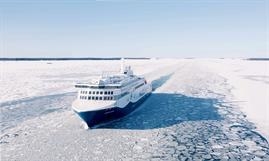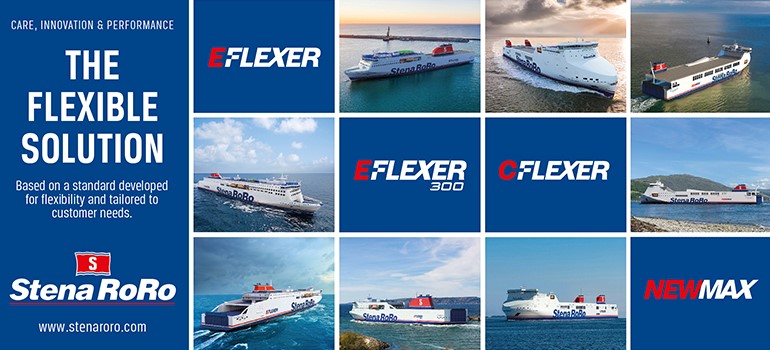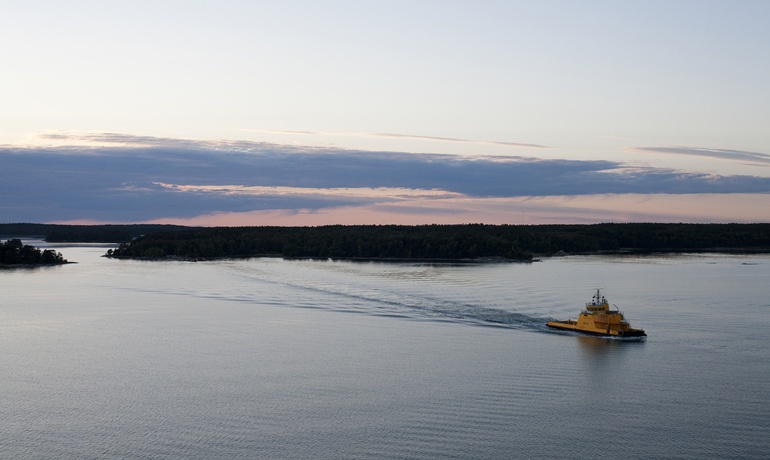
Finferries' MERGUS in the Turku archipelago. The extensive fleet renewal program, however, focuses on the company's primarily cable-based ferries on Finland's many lakes. © Søren Lund Hviid
Finferries signs agreement for 14 new electric ferries, built with re-used hulls
FerryThe Finnish domestic ferry operator Finferries (Finlands Färjetrafik Ab) has signed an agreement with the ELY Centre for Southwest Finland concerning the procurement project “Road Ferry Service for Lake Finland 2026–2047”. The company has developed an environmentally friendly transport concept for 12 cable ferry routes in Inland Finland, which will increase the transport capacity on these routes to 90 tonnes.
As a result, current restrictions on heavy traffic will be removed. The cable ferry fleet in Inland Finland will be renewed and electrified, reducing emissions from traffic in the area by more than 90% compared to current levels. The first renewed cable ferries will begin operating on the Lamposaari, Kietävälä, Rongonsalmi, and Tappuvirta routes at the end of 2026.
Under the new agreement, traffic with modernized equipment will begin on all cable ferry routes by the summer of 2028 at the latest. When constructing the 14 new cable ferries, existing hulls will be reused, supporting the company’s ecological values. By reusing old cable ferry hulls, the CO2 emissions associated with new steel production are avoided.
The CO2 savings achieved by reusing existing hulls correspond roughly to the emissions that diesel-powered cable ferry operations in Inland Finland would generate over a period of two and a half years.
“The recently signed 20-year agreement for cable ferry services at 12 ferry sites in Inland Finland is a significant step toward carbon-neutral road ferry operations. In the future, ferry traffic will be produced in a better, more sustainable, and cost-effective manner. Within the transport sector, road ferry services are at the forefront of achieving carbon neutrality while also improving service for road users. Our long-term goal is to achieve carbon-neutral road ferry operations by 2035, a goal we are advancing through our procurements and agreements. The transport objective is flexible and cost-efficient service production that takes into account regional mobility and transport needs,” says Tapani Jaakkola, Road Engineer at the ELY Centre for Southwest Finland.
“We are very pleased to be able to introduce environmentally friendly equipment in Inland Finland, supporting our strategic vision to be a pioneer in emission-free maritime transport. This marks a major step in the ecological development of road ferry services, where, in addition to emission-free operation, we also consider the importance of biodiversity,” says Håkan Fagerström, CEO of Finferries.
© Shippax
okt 10 2025


